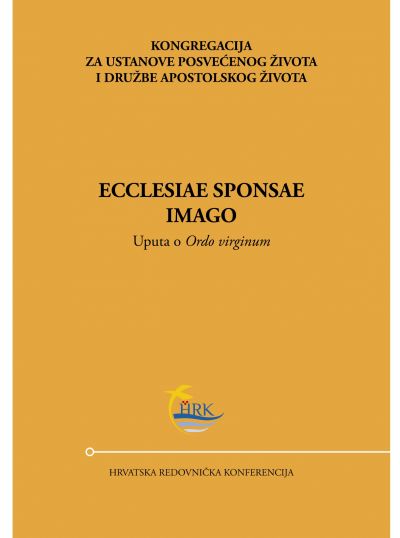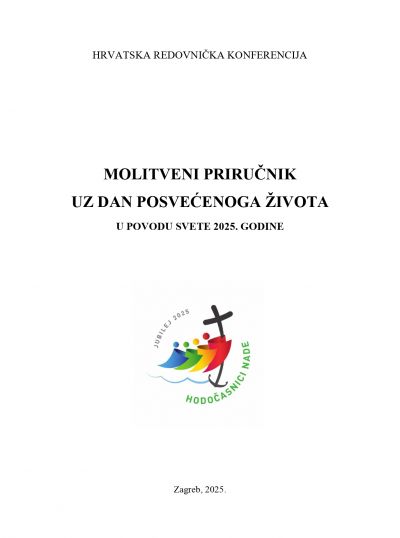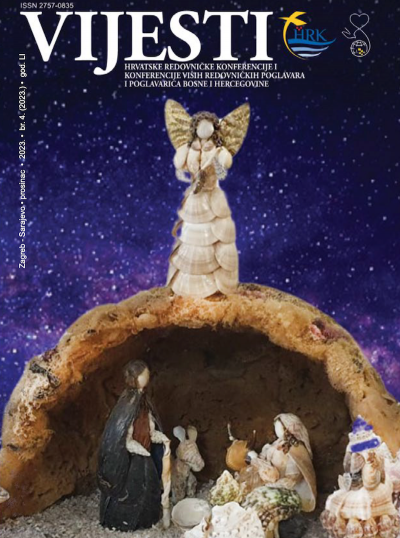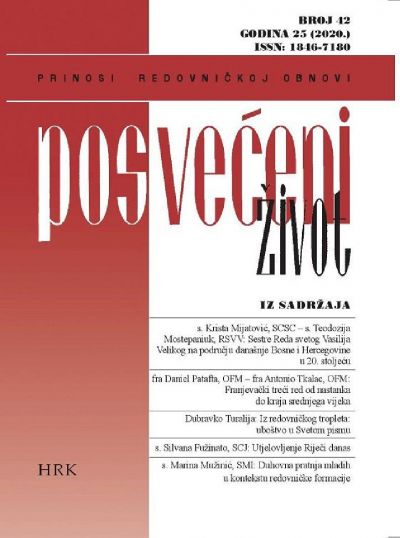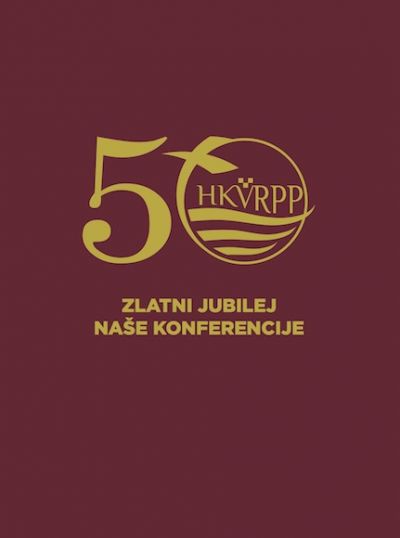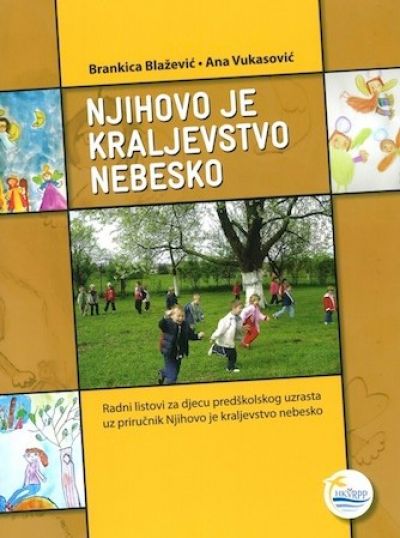The Statutes of the Croatian Conference of Major Superiors
The Statutes of the Croatian Conference of Major Superiors
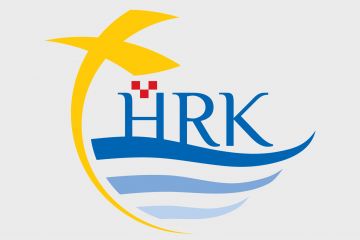
On the 12th of February 2011 The Congregation for Institutes of Consecrated Life and Societies of Apostolic Life (The Holy See) approved statutes of the Croatian Conference of Major Superiors.
BASIC PRINCIPLES
Article 1
The Croatian Conference of Major Superiors (hereinafter the Conference) is the joint forum of the Association of Major Religious Superiors of Men and the Association of Major Religious Superiors of Women and represents an official canonical entity of the Catholic Church. The formation of the Conference was formed as a result of the joint and complete accomplishment of the purposes of religious institutions, exchanging views on common work and cooperating with The Croatian Bishops' Conference (hereinafter HBK) and individual bishops.
Article 2
The Conference was founded by The Congregation for Institutes of Consecrated Life and Societies of Apostolic Life (hereinafter the Congregation) and is constituted by and remains under the supreme direction of the Holy See.
Article 3
Religious law applies equally to both men and women.
Article 4
The Conference shall have the following functions:
- to promote dialogue and collaboration with other major groups in the Church respecting each person's charisma,
- to promote and support the consecrated life as a gift to the entire Church and an evangelical witness to the world,
- to promote apostolic and charitable activities of the major groups,
- to solve many of the dilemmas and problems faced by Croatian monks,
- to promote spiritual renewal of Croatian monks,
- to maintain frequent and regular contacts with the Congregation,
- to maintain trustworthy relationship with HBK,
- to collaborate and promote solidarity among conferences in other countries,
- to make sure that gospel ministers are equally placed in Republic of Croatia.
Article 5
The Conference shall not interfere in the internal affairs of religious organizations while respecting their independence.
Article 6
The Conference may establish their own institutions: charitable, financial, and other institutions that are consistent with their mission.
Article 7
The constitution may be amended by a two-thirds vote of the delegates to the assembly present and voting, and approved by the Holy See.
MEMBERSHIP
Article 8
Membership of the Conference is open to:
senior religious leaders with residence in Republic of Croatia;
religious houses of the same fraternity in a given district.
Article 9
Senior religious leader with no residence in Republic of Croatia may not be a member of the constitution but may attend as an observer and adviser.
Article 10
Annual fees for the different classes of membership will be proposed and approved by a majority vote of the affected organizations in the Assembly of Members.
ASSEMBLY OF MEMBERS
Article 11
The Assembly shall be composed of official members of The Conference. When prevented from attending the Assembly, senior religious leader may delegate his deputy in the service of senior leader. This rule does not apply to members who are not senior religious leaders.
Article 12
The Assembly of Members shall have the following functions:
- to supervise the work of the Conference;
- to approve Conference activities report;
- to pursue a new strategic initiatives;
- to discuss any issue relating to the church in the Republic of Croatia.
Article 13
An Annual Meeting of the Assembly of Members will be held once a year and will be convened by the Executive Committee.
Article 14
Calls for an Assembly of Members Meeting specifying the agenda will be communicated to the members two months prior to the meeting. Advance notice specifying the date, location, agenda and modality of the meeting is to be given by the president of the Assembly of Members.
Article 15
If necessary for the effective operation of the organization, e-mail or fax-based votes of the Executive Committee may be taken by majority vote of respondents between Executive Committee meetings; these votes must be confirmed at the next in-person Executive Committee meeting. The quorum for the Executive Committee meetings is one-third of its voting members.
Article 16
Should the President not be able to fulfill the term of office, the First Vice President will serve as the acting President.
Article 17
Call for an Assembly of Members Meeting should be communicated to the Papal Nuncio to Republic of Croatia to whom should be committed activity report of the Conference. The activity report should be delivered to the Congregation.
Article 18
Representatives of HBK and conferences in other countries may be invited to the Assembly of Members Meeting to participate as observers and advisers.
Article 19
Decisions shall be taken by a simple majority vote of representatives present and voting.
Article 20
In order to realize their functions, experts representing advisers and assistants, or commission leaders may be invited to the Assembly of Members Meeting to participate, without the right to vote.
Article 21
The process for alienation of immovable property requires simple majority votes of all members of the Assembly.
ASSOCIATE COUNCILS
Article 22
The Assembly consists of the President, First Vice President of the Conference and four members of the Council elected in a mandate for three years.
Article 23
The President and First Vice President of the Conference are being elected by the Assembly and the voting in such election is by secret ballot requiring more than a majority vote. If elected president is a nun, vice president shall be elected among the monks, and vice versa.
Article 24
Four members of the Council are being elected in a way that each present member of the Conference suggests two monks by secret ballots. Those with the largest number of votes are elected. In the case of an equal division of votes, selected are those who are older by the performance of services of senior leaders. Nuns are being elected in the same way.
Article 25
If a President, First Vice President or a member of the Council stop being senior leaders in their religious institution, they however complete their mandate in the Council.
Article 26
In case of no President, the First Vice President takes his place. A member of the Council with a majority vote takes place of the First Vice President and a new member of the Council is elected by a majority vote of the Council.
Article 27
In case of no First Vice President, the member of the Council with a majority vote takes his place and a new member of the Council shall be elected.
Article 28
In case of no member of the Council, a new member shall be elected by a majority vote to finish a mandate.
Article 29
Member of the Council unable to attend the Assembly of Members Meeting cannot delegate to another person.
Article 30
In almost all cases, the outgoing president hands over power directly to his designated successor after a leadership contest or general election by submitting a financial statement, fixed asset register and an archive of the Conference.
Article 31
The Council shall prepare the agenda of each meeting of the Assembly. The Council is responsible for producing all the information required for making effective decisions and for implementing all decisions of the Assembly.
Article 32
The President and First Vice President together with the member of the Council if necessary can participate in the assembly of HBK when invited.
Article 33
The President shall have the following functions:
- to sign official documents of the Conference;
- to represent the Conference before the ecclesiastical and civil authorities;
- to attend and participate in Board and Committee meetings when necessary;
- to submit an annual and economic report to the Assembly.
Article 34
The Council meetings are chaired by the President of the Conference and take place four times a year.
Article 35
The Secretary of the Conference shall attend the Council meetings as a recording secretary.
GENERAL SECRETARY
Article 36
The General Secretary is appointed by the Assembly for a term of three years signing a valid contract. The Assembly may appoint a person who is not a monk. The same person can be repeatedly appointed General Secretary.
Article 37
The General Secretary shall have the following functions:
- to obtain all reports and other documents from member institutions;
- to take care of the Conference Archive;
- to keep official statistic on important data of religious institutes;
- to cooperate with the executive secretaries of the regional commissions;
- to edit and print Conference papers at least once a year;
- to keep the members of the Conference informed on important matters.
Article 38
The Council may appoint Assistant Secretary who is not a monk.
TREASURER
Article 39
The Treasurer is appointed by the Assembly for a term of three years and the same person can be repeatedly appointed. The Assembly may appoint a person who is not a monk. General Secretary may perform a service of Treasurer if necessary.
Article 40
The Treasurer shall have the following functions:
- to take care of temporal goods according to the President of the Conference;
- to bear the expenses of the Conference with the President's approval;
- to obtain all annual reports and other documents and propose them to the Assembly.
Article 41
The Council may appoint Treasurer who is not a monk.
THE CENTRAL COMMITTEE
Article 42
§ 1. The Central Committee consists of:
- The Committee for the initial formation of monks and nuns;
- The Committee for the ongoing formation of monks and nuns;
- The Committee on Pre-School Special Education run by religious institutes;
- The Nurses Committee
- The Committee on Consecrated Life and Vocations
- The Committee for Social Communication and publishing.
§ 2. The board may establish other committees, both permanent and temporary, as it deems necessary.
Article 43
The Council may appoint monks who are not members of the Conference as leaders and members of the committee.
Article 44
Committee members shall annually select from among themselves one who will serve as a General Secretary.
Article 45
The leader of the Committee shall inform the Council and the General Assembly of their work.
Article 46
The Committees shall have the following functions:
- to promote cooperation among religious institutes in the same fields of the apostolate;
- to promote proper formation of monks working in the same field of apostolate;
- to perform tasks entrusted to it by the Council.
Article 47
Each Committee adopts its own set of rules approved by the General Assembly, giving each panel its own special character.
17. - 19. listopada 2025.
Duhovni centar "Karmel sv. Ilije" (Zidine b.b., Tomislavgrad, BiH)
Tema: Snaga nade u službi zdravlja
Voditeljica: s. Mirjam Peričić OP
Prijave do: 17. rujna 2025.
21. - 22. listopada 2025.
Zagreb, Jordanovac 110
Tema: Sinodalna i misijska Crkva u službi evanđelja
Prijave do: 21. rujna 2025.
6. - 8. ožujka 2026.
Kuća Navještenja (Gromiljak, BiH)
Tema: Novo srce u Srcu Kristovu: redovnički zavjeti kao mjesto preobraženja
Voditeljica: s. Ivana Gelo AdC
Prijave do: 6. veljače 2026.
7. ožujka 2026.
Tema: I zahvalni budite (Kol 3,15)
Prijave do: 7. veljače 2026.
14. - 21. ožujka 2026.
Krk, Šetalište Dražica 2
Voditelj: o. Srećko Rimac OCD
Prijave do: 14. veljače 2026.
28. – 30. travnja 2026.
Franjevački samostan na Cresu
Tema: Aktualnost redovništva danas
Voditelj: fra Matej Jovanovac TOR
Prijave do: 28. ožujka 2026.
8. - 10. svibnja 2026.
Franjevački samostan, Košljun
Tema: "Blago čistima srcem, oni će Boga gledati" (Mt 5,8)
Voditelj: izv. prof. dr. sc. Taras Barščevski
Prijave do: 8. travnja 2026.
15. - 17. svibnja 2026.
Kuća molitve (Masna Luka, Park Blidinje, BiH)
Tema: „Mir Božji (…) čuvat će srca vaša“ (Fil 4,7)
Voditelj: fra Josip Vlašić OFM
Prijave do: 15. travnja 2026.
26. svibnja 2026.
Karlovac – Lasinja – Ozalj
Prijave do: 26. travnja 2026.


